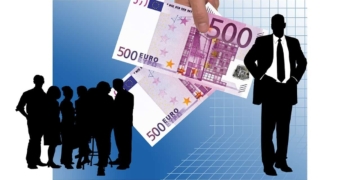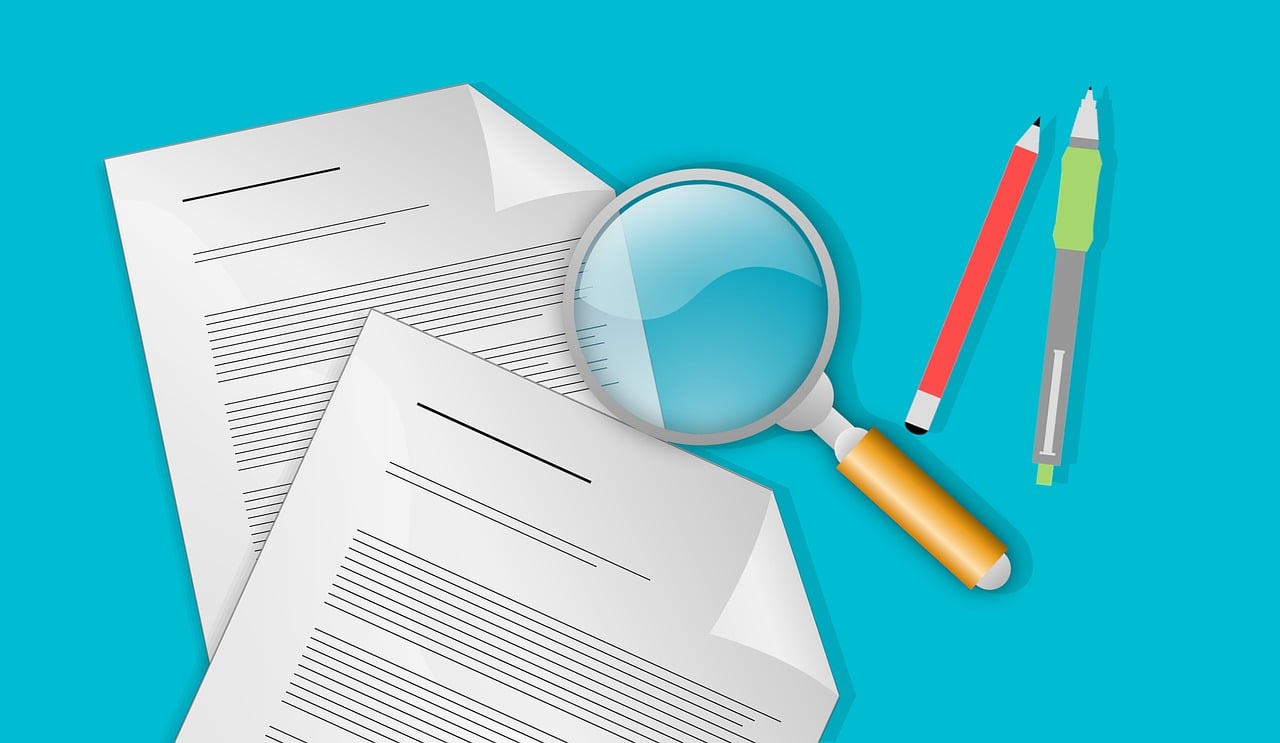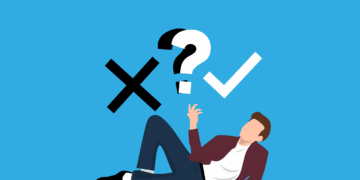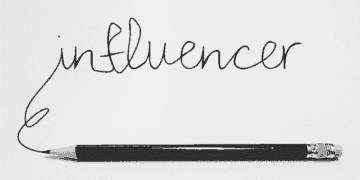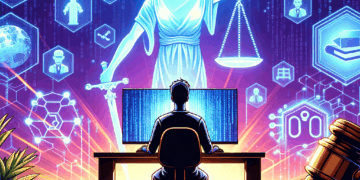OnlyFans has established itself as a platform on which content creators – often in the erotic sector – offer their content for a fee. German creators can build up a lucrative business with erotic content. At the same time, however, problems such as leaks and content theft occur time and again: Content that is actually only reserved for paying subscribers appears without permission on Reddit, Telegram or special leak websites. Such incidents not only violate the creator’s rights under copyright law and contract, but also the personal rights of the people depicted. This blog article provides a comprehensive overview of how adult content on OnlyFans is legally protected and what steps German creators can take – from criminal and civil law measures and international DMCA takedowns to technical safeguards, contracts and platform tools.
Legal measures for leaks and content theft
If exclusive OnlyFans content ends up online without permission, there are various legal steps available to those affected. German law protects both the intellectual property (copyright) of content as well as the right to one’s own image and the privacy of the creator. The most important criminal and civil remedies against leaks and content theft are explained below.
Criminal consequences for leaked erotic content
Unauthorized publication of intimate photos or videos can be punishable in Germany. Section 201a of the German Criminal Code (StGB), which criminalizes the violation of the most personal sphere of life through image recordings, is particularly relevant here. This provision covers the unauthorized production and distribution of images relating to a person’s private sphere. This typically includes erotic or nude content that a creator only wanted to show in a protected setting (such as behind a paywall on OnlyFans). Anyone who shares such images publicly without the consent of the person depicted – for example by leaking OnlyFans content – must expect to be prosecuted. § Section 201a of the German Criminal Code provides for fines or imprisonment of up to two years and is intended to punish phenomena such as revenge porn and the unauthorized sharing of nude images.
In addition, the German Art Copyright Act (KUG) provides further criminal protection: Section 33 KUG makes it a punishable offense (up to one year’s imprisonment or a fine) to distribute or publicly display a portrait of a person without their consent, unless an exception applies. The so-called right to one’s own image (§ 22 KUG) states that images may only be published with the consent of the person depicted. Leaks of OnlyFans photos generally violate this right – a deliberate infringement can therefore also be punishable under Section 33 KUG.
Depending on the individual case, other criminal provisions may come into consideration. If, for example, the content is disseminated with the aim of disparaging the person concerned or damaging their reputation, offences such as defamation or libel (Sections 186, 187 StGB) could be relevant. If intimate content is used to blackmail or coerce someone (e.g. by threatening to publish nude images if no money is paid), perpetrators are liable to prosecution for coercion/extortion (Sections 240, 253 StGB). Identity theft or the creation of fake profiles in order to pass off other people’s content as your own can also be criminally relevant (including fraud under Section 263 StGB if payments are obtained).
For affected creators, it can make sense to file criminal charges if intimate content has been leaked. Although the focus of criminal proceedings is on the state’s criminal claim, the prospect of criminal consequences increases the pressure on the perpetrators. Leakers are often anonymous on the internet; a report can help to involve investigating authorities, e.g. to trace IP addresses or order searches of suspects’ homes. In practice, however, criminal prosecution has its limits – especially if the perpetrators are located abroad or the police do not prioritize the case due to a lack of capacity (unfortunately, those affected report that sex work and erotic content is sometimes treated with hesitation). Nevertheless, the statutory penalties show that the unauthorized use of intimate content is not a trivial offence.
Civil law steps: Warning, injunction and damages
Independent of government agencies, creators can also enforce their rights under civil law. The focus here is on immediately stopping the further distribution of the leaked content and compensating for any damage suffered. The core instruments here are injunctive relief and claims for damages under copyright law and personal rights.
Warning and injunction: In Germany, the usual first step is a warning letter. This is a letter (usually from a lawyer) requesting the infringer to cease the offending behavior and to promise not to disseminate the content in the future by means of a cease-and-desist declaration with a penalty clause. A cease-and-desist letter has two advantages: it can be issued very quickly (without court proceedings) and the person being warned must – if the warning is justified – bear the costs. In the event that the infringer does not respond or refuses to make the required declaration, the rights holder can file an action for an injunction with the civil court. In urgent cases, for example if the content is quickly disseminated, it is also possible to obtain a temporary injunction. In this case, the court decides in summary proceedings whether to issue a preliminary injunction – often within a few days. This makes it possible, for example, for a leaked website to have to take the content offline immediately, even before lengthy proceedings on the merits have been concluded.
Compensation and license analogy: If the content theft has caused financial damage, creators can claim compensation. In copyright law, there is the principle of license analogy: The infringer should be placed in the same position as if he had had to pay a reasonable license fee for the unauthorized use. Specifically, the usual price that the content would have fetched on OnlyFans can be applied. Example: If images reserved exclusively for paying fans are made freely available online, the creator loses subscription revenue – this can be claimed as damages. A lump sum is often demanded for each illegally published photo or video, which is based on standard industry fees. In particularly serious cases, non-material damages – so-called compensation for pain and suffering – can also be claimed. This is particularly relevant in cases of violations of personal rights, for example if intimate images have been published without consent and the person concerned has suffered emotional distress or damage to their reputation as a result. German courts are increasingly awarding damages for pain and suffering in cases of violations of the most personal sphere of life in order to compensate for the injustice suffered. The amount depends on the severity of the infringement and can amount to several thousand euros in serious cases (e.g. extensive distribution of nude photos).
Responsibility of platforms: The direct perpetrators are often unknown or difficult to identify – the content appears anonymously in forums, on specific websites or in Telegram groups. In such constellations, it is worth looking at the operators of the respective platform or website. Under German law, service providers (host providers, website operators, etc.) are not generally liable for every infringement committed by users, but must react as soon as they become aware of a clear infringement. A platform operator who is notified of a copyright infringement (e.g. via a notice-and-takedown notification) must remove the content in question without delay in order to avoid becoming liable. If they fail to do so, you can also claim injunctive relief against the operator. In practical terms, this means If you find leaked content on a particular website, you should formally request the operator to delete it immediately (with legal assistance if necessary). Large, reputable platforms usually have well-established processes for such reports and remove illegal content relatively quickly in order to avoid their own legal risks. It is more difficult with anonymously operated leak pages without an imprint or with platforms that are based abroad and do not respond to complaints from Germany.
It can therefore be stated under civil law: Creators have a right to ensure that their erotic content is not distributed without authorization. In the event of leaks, warning letters and court orders can be used to ensure that the distributors – and, if necessary, the platforms – remove the content immediately and are spared in future. In addition, claims for damages should compensate for the financial loss incurred and have a deterrent effect. It is important to act quickly and secure evidence (screenshots of the published content, URLs, times, etc.) in order to be able to substantiate the claims.
International dimension and DMCA
The enforcement of rights is more complicated if the leaked content is located on foreign servers or platforms based abroad. In such cases, German court decisions or criminal charges often come up against practical limits. Fortunately, there are proven mechanisms at international level to at least achieve the deletion of copied content – above all the procedure under the Digital Millennium Copyright Act (DMCA) in the USA.
DMCA takedown for global platforms: The DMCA is a US law that obliges operators of online services to remove the content in question in the event of notices of copyright infringement in order to remain exempt from liability themselves. Even if a German creator is not subject to US law, they can still use a DMCA takedown notice, as large international platforms such as Reddit, Twitter, Instagram and Google adhere to this procedure. In concrete terms, this means that if you come across your own OnlyFans material on such a platform that has been posted without permission, you can formally write to the platform operator in accordance with the DMCA. Such a letter must contain certain information – such as the identification of the protected material, proof that you are the rights holder and an affidavit of infringement – and be sent to the platform’s designated DMCA contact point. As a rule, most services offer convenient online forms for this purpose. After receiving the notice, the platform usually removes the reported content within a short period of time in order to avoid becoming liable itself. This procedure is comparatively uncomplicated for the creator, as there is no need to involve a court and there is no obligation to hire a lawyer – you are practically acting on your own initiative as the rights holder.
Application also for German creators: Even though the DMCA is a US law, German erotic models benefit from it because many of the relevant leak distribution sites touch on American jurisdiction. Reddit, for example, is a US company – a DMCA notification is taken seriously there. Similarly, large content platforms and even hosters often react globally to DMCA complaints. A German model can therefore send DMCA notifications from their living room at home in order to enforce their rights worldwide. The authorship or rights ownership is important here: the DMCA only applies to copyright infringements. In practice, this often coincides with the right of personality, because anyone who offers their own images/videos on OnlyFans is either the author themselves or has received the exclusive rights of use from the photographer/producer (more on this in the section on contracts). Cases in which your own person is depicted but you are not the author of the recording are more difficult – here you have personal rights, but you do not formally have the copyright for DMCA. In such constellations (e.g. a press photo or an image created by a third party becomes a meme), other approaches would have to be taken. For the majority of OnlyFans leaks, however, the material shown is protected by copyright and the creator can invoke their rights to carry out DMCA takedowns.
Examples and limits of international approaches: Different platforms sometimes require different strategies:
- Social media & large platforms (Reddit, Twitter, TikTok, Instagram): These providers have well-established copyright notification procedures (usually DMCA-based). A report usually leads to the swift removal of the content and, if necessary, sanctioning of the user accounts that posted the content. As these companies operate globally, the language of the DMCA notice is usually English. German creators should therefore ideally send an English notice. Important: Each platform has its own forms/guidelines – a look at the help pages (“Report Copyright Violation”) will help here.
- Telegram: Telegram is a special case, as the company has no clearly identifiable headquarters and has long been considered difficult to contact. However, there is an email address(dmca@telegram.org) that can be used to report copyright infringements. Some specialized services report that Telegram reacts after multiple reports and, for example, blocks channels or groups in which masses of stolen content are distributed. Nevertheless, Telegram is considered slow in its enforcement – deleted groups often reappear under a new name. It can be frustrating for creators to be left behind. Nevertheless, you should take advantage of the opportunities: Collect evidence of the specific violations (screenshots of the chat groups with the content, preferably with group names and details) and send these bundled to Telegram. Google can also help indirectly in this context: A DMCA reporting procedure at Google can ensure that search results that refer to illegal content (such as in Telegram web viewers or on index pages) are removed from the index. This at least reduces the discoverability of such leaks.
- Dedicated leak websites and forums: There are special websites on the internet that systematically collect OnlyFans content and offer it for free download. These often operate anonymously and in legal gray areas – some constantly change domains or host their servers in countries with lax enforcement. It is difficult to take direct action against such sites. A DMCA takedown to the hosting provider may be successful if they are based in the US or a country with similar rules; however, some sites deliberately host with DMCA-insensitive providers. In such cases, there is often only the indirect route: for example, complaining to the domain registry, using trusted flagger programs or blocking the site via court proceedings (which is possible in Germany under the Telecommunications Act under strict conditions). However, these means usually go beyond the scope of what an individual creator can achieve. This is where professional service providers often come into play.
- Professional anti-piracy services: Because the extent of OnlyFans leaks is enormous (estimates assume that a significant proportion of pay content will reappear somewhere sooner or later), there are now companies that specialize in content protection. Services such as Ceartas, Rulta, DMCAForce and others automatically scan the web for copied content and send out takedown notices en masse on behalf of the creator. OnlyFans itself has entered into partnerships with several such providers (Ceartas DMCA is an official “Safety Partner” of OnlyFans). Although these services cost money, they can be useful for successful creators to detect and combat leaks around the clock. Internationally operating agencies in particular have greater clout here and know the right places to tackle even stubborn cases (e.g. in obscure forums).
To summarize the international dimension of legal protection: German OnlyFans creators are not powerless if their content is distributed outside Germany. DMCA takedowns and global reporting procedures can at least achieve a far-reaching removal of illegal copies. At the same time, there are limits when operators hide or content is repeatedly uploaded. Complete content discipline on the Internet can hardly be enforced – but every removal counts. Combined with German claims (injunctive relief, damages), this can make life difficult for the leakers and send a clear signal that content theft will not be tolerated.
Technical protection and digital watermarks
In addition to legal action, creators should also make use of technical options to protect their content or at least make leaks traceable. Digital watermarks are a tried and tested tool in the content industry. These are markings that are embedded in images or videos – either visible (e.g. lettering) or invisible (e.g. coded pixel patterns or metadata) – to identify the origin or owner of a piece of content.
Watermarks as a deterrent and proof: Many OnlyFans creators deliberately add visible watermarks to their photos and clips, such as their user name, logo or artist name at the edge of the image. OnlyFans itself offers an integrated feature for this: Creators can have personalized lettering (such as their profile name) automatically placed on their media. Branding of this kind initially has a deterrent effect: potential redistributors know that the content is marked and its origin remains recognizable. Anyone who illegally shares an image with the clearly recognizable “OnlyFans.com/@Username” on it makes it obvious who it comes from – which in turn can alert the creator. In addition, other users who see the leak are more likely to understand that it is stolen content, which would actually have to be paid for. In short: the open watermark increases the inhibition threshold for simple theft.
Even more interesting are invisible watermarks or digital fingerprints. These embed hidden information in the file that cannot be seen with the naked eye – for example, individual pixel distributions or hash values. In theory, it would be possible to send each individual subscriber a slightly different copy of a video so that it can later be traced which account caused the leak. In practice, individual creators rarely use this, but the platform itself and external anti-piracy services use such techniques. If, for example, a leaked video was provided with an invisible identifier, it can be used to prove in court which source it came from – for example, which paying user distributed it first. Such evidence is enormously helpful in holding a wrongdoer accountable, whether under criminal or civil law. Ideally, the identified leaker can then not only be prosecuted under civil law with injunctive relief and damages, but can also be blocked on OnlyFans and their data reported to the law enforcement authorities.
Limits of traceability: Despite all the technology, the limits of digital watermarks must not be forgotten. Determined content pirates find ways to remove or obscure visible watermarks – be it by simply cropping the image, blurring the logo or overlaying it with their own font. Invisible watermarks can be damaged when re-encoding or compressing videos; a screenshot (photographing the screen) can bypass digital fingerprints as it transfers the medium into a new file. Especially when leaks are reused by agencies or third parties, the content is often deliberately edited to make tracking more difficult. For example, intermediaries could repackage the material (e.g. in a compilation or with their own branding), which means that the original markings are lost. Conversion to other formats or multiple re-uploads in lower quality can also make invisible markers unrecognizable.
Watermarks should therefore be seen as a supplementary protective measure, not as an absolute solution. They help to deter honest subscribers and provide evidence in the event of a leak, but they are no substitute for legal action. From a legal point of view, watermarks are of course permissible and even recommended – they do not infringe the rights of third parties, but merely mark your own work. Watermarks can be used as evidence in court: If, for example, a subscriber’s username is displayed in the leaked video, it will be difficult for them to deny that they were the source of the leak. However, in case of doubt, an expert must confirm that the watermark is genuine and unaltered. This is usually unproblematic, but theoretically a resourceful opponent could claim that the marking has been manipulated. Nevertheless, in combination with other evidence (e.g. the fact that this particular user had access to the content), watermarks significantly increase the chances of convicting the person responsible.
Further technical protective measures: In addition to watermarks, creators rely on pragmatic methods to prevent leaks. This includes only sending particularly sensitive content in a personalized way (e.g. via direct message against payment) and documenting every dispatch – so you know exactly who has received what. Some only upload their content in low resolution to reduce the value of a leak (paying customers then receive the HD version on request). Regular independent monitoring (e.g. using reverse image searches on Google to find copies of your own images online) is also a sensible technical routine. Although it will never be possible to completely prevent leaks, such measures considerably increase the risk and effort for potential content thieves.
Contractual protective measures
An often underestimated aspect of content protection is clear contractual regulations with all parties involved in the creation and publication of content. Especially in the erotic sector, many creators work together with photographers, co-creators or specialized agencies. Such collaborations bring advantages, but also entail risks if rights and obligations are not clearly defined. Here are some important points that should be regulated in contracts to prevent abuse and disputes in advance:
Contracts with photographers and video producers
Anyone planning professional photo shoots or video shoots for OnlyFans should make sure to contractually stipulate who owns the rights to the results. According to copyright law, the photographer or cameraman is initially the author of the images. Without a different agreement, a photographer could theoretically use the images himself or grant licenses to third parties – which is of course not in the interest of the model who wants to sell the content exclusively on OnlyFans. A usage agreement is therefore essential: In it, the photographer must grant the model comprehensive usage rights, ideally exclusively and for an unlimited period of time, at least for all relevant purposes (online use on OnlyFans, social media, advertising purposes, etc.). It is often agreed that the model pays a fee in return or – if it is a TfP shoot (“Time for Print”) without payment – at least the photographer may use the images themselves in a defined manner (e.g. for their portfolio), but may not sell them to third parties or publish them freely under any circumstances.
Non-disclosure and confidentiality clauses are also important. For erotic photos in particular, the contract should state that the photographer is not allowed to pass on or publish the images without further ado and that they may only keep them within the agreed framework after the project has been completed. It can also be stipulated that raw data or unedited images will not be released in order to avoid uncontrolled distribution. Ideally, the model should receive all end products and be able to control what happens to them.
Such contractual precautions protect the creator from a photographer subsequently publishing content on their own authority (e.g. on their website, on social media or – in the worst case – on porn sites). In the past, there have been cases in which photographers have sold nude photos to third parties or leaked them themselves without the consent of the models. A contract creates a clear legal situation here: if the photographer violates this, they can immediately be sued for injunctive relief and damages. At the same time, it goes without saying that reputable photographers respect the rights of the models – so good contracts protect both sides and ensure trust.
Agreements with co-creators and models
Many successful OnlyFans profiles rely on collaboration – be it with fellow creators for joint photos/videos or with partners for erotic or pornography shoots. As soon as several people create content together, the question arises: Who is allowed to do what with the resulting material? To avoid conflicts, co-creators should make written agreements in advance. These can, for example, stipulate
- Rights of use: Both parties may publish and advertise the content on their respective OnlyFans accounts. Any further use (e.g. sale of the material to third parties, publication on free platforms, YouTube, etc.) is only permitted with mutual consent. This prevents one partner from suddenly distributing the joint video outside OnlyFans, which could harm the other.
- Revenue sharing: If both partners use the material, each earns separately. Nevertheless, you can agree on how to share any joint costs or whether one partner should share in the other’s income. Although this relates more to financial matters than legal protection, it ensures fairness – disagreement over money may otherwise lead to ill-considered actions (e.g. someone leaking content for free out of anger).
- Personal rights: Each co-creator should give their consent to publication (e.g. in the form of a model release or a simple written consent in accordance with KUG). Both confirm that they agree to the publication on OnlyFans. This protects against someone later prohibiting publication, even though you shot together. At the same time, it should be noted that no distortion or alienation of the material may be carried out without consent – so that no one portrays the other in a compromising manner (e.g. through meme formats or similar).
- Confidentiality and data protection: Confidentiality is particularly important if one of the participants wishes to remain anonymous (many co-performers may not appear publicly on OnlyFans themselves). Agreements can stipulate that real names, contact information etc. remain confidential and that no one “outs” the other or leaks personal details.
Creators protect each other through clear agreements. If one party violates the agreement – e.g. by uploading the joint video to another platform without being asked – the other party has a contractual claim to cease and desist and, if necessary, compensation. In addition, the general right of personality or copyright law can of course be invoked in parallel (anyone who appears in the video and has not consented to its distribution can assert claims even without a contract). Nevertheless, written contracts ensure clear conditions and deter people from breaking the rules of the game.
Contracts with OnlyFans management agencies
OnlyFans agencies have been springing up in Germany for some time now. These agencies offer services such as account management, content planning, advertising on social media and, in some cases, chat support with fans. Creators in particular, who are growing very quickly or do not want to take care of everything themselves, take advantage of such offers. But be careful: working with an agency often means giving up a large part of the control over the account and the content. Waterproof contracts are absolutely essential here to prevent the misuse of adult content.
A good agency agreement should above all regulate the following:
- Rights to the content: It must be clearly defined that all content remains the property of the creator. The agency only receives a limited right of use, exclusively for the purpose of using the OnlyFans account (and any agreed advertising channels) in the interests of the Creator. Any other use – such as passing on photos to third-party websites or using them for the agency’s own purposes – is strictly prohibited. This prevents an agency from later selling the material somewhere without authorization or using it as a reference.
- Dealing with account access data: Agencies often need access to the OnlyFans account. It should be regulated here how the access data is stored and used. For example, the contract may stipulate that the agency will not make any changes to payout information, will not post any content without the creator’s approval (at least none that has not been agreed in advance) and, in particular, will not download any existing media unless it is necessary for the fulfillment of the task. Every action in the account should be documented.
- Termination of the collaboration: A critical point is what happens when the contract ends or a dispute arises. It must be stipulated that the agency hands over all access data to the creator at the end of the contract, deletes all copied content and does not retain any backups. In addition, a post-contractual non-competition and non-disclosure clause should apply: The agency may not use any of the content or information obtained later, for example to set up a competitor account or distribute leaked material anonymously. Unfortunately, there are negative examples from the industry: former agencies that take revenge after a break-up by spreading intimate photos of the model on the Internet, or agency employees who “steal” databases with content. Strict contractual clauses at least create a legal basis for taking action against such behavior in the event of an emergency.
- Contractual penalties: To increase the deterrent effect, contractual penalties can be agreed for certain breaches of contract. For example: “If the agency publishes content outside the agreed platform without permission, it will pay a contractual penalty of X euros per incident.” Such clauses motivate the agency to adhere to the agreements and save time-consuming proof of damages (which can be difficult in the area of reputational damage).
In general, creators should choose very carefully who they entrust with their digital treasures. An agency may entice you with promises, but in the end it has access to precisely the content whose unprotected distribution could threaten the creator’s existence. Therefore: check the contract (with a lawyer if in doubt), insist on clear regulations and, if in doubt, it is better to avoid a deal that gives you a bad gut feeling. If, despite all caution, misuse by the agency takes place, you can react quickly under civil law with the contract behind you – and under criminal law, depending on the severity, offenses such as betrayal of business and trade secrets or violation of private secrets could also be considered.
Personal rights protection: right to one’s own image, memes & deepfakes
It is not only copyright law that offers protection – the general right of personality and especially the right to one’s own image are also essential for OnlyFans Creator. In contrast to copyright law, personality rights are linked to the fact that the person is affected – for example because their image is published, their reputation is attacked or their privacy is violated. These issues are particularly important for erotic content, as nudity and sexuality are at the heart of private life.
General right of personality & privacy: The general right of personality is anchored in the German legal system as a “framework right” (derived from Art. 2 para. 1 in conjunction with Art. 1 para. 1 of the German Basic Law). It protects a person’s dignity, honor and self-determination. If intimate photos are circulated without consent, there is typically a serious violation of this personal right. Those affected often experience this as exposure to the public and as a massive intrusion into their personal happiness. In comparable cases – such as the distribution of secret sex videos or private nude photos – the courts have regularly granted injunctive relief and often also recognized immaterial damages. In the case of OnlyFans content, it should be noted that this was originally created by the creator himself and published for a fee; however, this was done in a controlled context (paywall, selected audience). The unsolicited redistribution outside of this context deprives the creator of control over his appearance and can expose him considerably. It can therefore generally be argued that, in addition to copyright, the right of personality is also affected.
Right to one’s own image: As a special case of personal rights, Section 22 KUG stipulates that images of a person may only be distributed with their consent. Anyone who publishes the photo of a creator (whether on a meme page, a forum or elsewhere) without consent is therefore acting unlawfully – unless an exception under Section 23 KUG applies (e.g. portraits of contemporary history, people as an accessory to a landscape, etc., which is obviously not relevant in the case of erotic content). The right to one’s own image even applies regardless of who took the photo. The only thing that matters is that a recognizable person is depicted and that this person has not consented to the publication. In the context of OnlyFans, you may think that the person has consented to the publication on OnlyFans, but this consent does not automatically extend to other contexts. If a subscriber copies the image and places it on the free Internet, consent is not required for this new publication. The creator can then demand that the disseminator delete the image and no longer disseminate it in future (injunctive relief). If necessary, this claim can be enforced in court with an interim injunction. As mentioned above, you can also claim compensation for pain and suffering, especially if the publication of the image had a damaging or psychologically stressful effect on your reputation. As the infringement of the right to one’s own image is also punishable under Section 33 KUG, this underlines the seriousness of the protection.
Memes and defamatory content: On the internet, leaked images are sometimes accompanied by mocking or insulting comments, such as memes. This is doubly problematic for the creator: not only is the image out there without authorization, it is also placed in a ridiculous or derogatory context. In addition to the right to the image, the protection of honor often also applies here. Insulting memes – e.g. an erotic photo with a derogatory caption – can constitute an insult (Section 185 of the German Criminal Code) and can be prosecuted under civil law as a violation of personal rights. In such a case, the creator can demand that the meme is deleted and that the creator does not distribute it any further. There may be a claim for revocation or correction if false facts about the person have been claimed. Such proceedings are similar to classic press law cases, where action is taken against publications that damage a person’s reputation. In the case of widely circulated memes, it may be difficult to identify the originator. Nevertheless, platforms can be asked to remove this content (a reference to community standards against bullying often helps here, in addition to legal arguments). Filing a complaint (for insulting behavior) can also be considered, although anonymous internet trolls can rarely be found immediately. The important thing to remember is that you don’t have to accept being made a laughing stock – the law offers leverage to at least clean things up afterwards.
Deepfakes and AI fakes: Pornographic deepfakes are a new challenge – i.e. artificially created videos or images that give the impression that a person (often a well-known personality or an OnlyFans model) is involved in explicit sexual acts, although they were never involved in such a recording. Technically, existing photos or videos of the person (such as Instagram images) are used for this purpose and mounted on other people’s porn material using AI. This is extremely disturbing for those affected, as their face and reputation are misused for content that they have never produced. Legally, this is a difficult area because there is no real “likeness” of the person in the strict sense – it is a montage. However, case law tends to subject even realistic image montages to portrait protection. After all, the average viewer recognizes the person and may believe that it is a real video of them. From the point of view of personal rights, there is undoubtedly a serious violation here: Privacy and sexual self-determination are violated, as is possibly honor if the deepfake was created/distributed with offensive intent.
To date (as of 2025), there is no specific criminal offense in Germany that expressly prohibits deepfake pornography, but there are initiatives and considerations to expand criminal law in this area. Regardless of this, those affected can take civil action against the creators and distributors of such deepfakes. They can demand an injunction – anyone who distributes the fake video must remove it and refrain from distributing it in the future. In addition, depending on the constellation, compensation for damages/compensation for pain and suffering may be considered, as the psychological damage caused by such identity abuse can be enormous. A criminal assessment is also possible in individual cases: if the deepfake is used in the context of stalking, threats or blackmail, the relevant criminal laws apply. And if, for example, the distribution of the deepfake is linked to defamatory claims (“Look, XY makes porn”), defamation/slander offences could be fulfilled, as the fact depicted is untrue.
For OnlyFans Creator this means: Your personal rights protection extends not only to genuine content, but also to not being unintentionally made the subject of other people’s pornographic images. So if deepfake images or clips with your own face appear somewhere, you should react consistently – report the platform, press for deletion and, if necessary, take legal action. The inhibition threshold for creating such fakes is unfortunately falling as technology advances, but there is also a growing awareness among courts and legislators that regulation is needed here. However, the following already applies: no one has to tolerate being portrayed pornographically in public without having controlled it themselves. The right of personality offers solid approaches for taking action against these digital attacks.
Platform’s own protection mechanisms at OnlyFans
OnlyFans itself is naturally interested in ensuring that the creators on the platform feel safe and earn their money without everything being leaked immediately. Therefore, OnlyFans provides a number of its own protection mechanisms and rules that form the first line of defense. Creators should know and use these means to secure their adult content in the best possible way:
- Watermark feature: As already mentioned, OnlyFans offers integrated digital watermarking for creator content. In the settings, you can activate that every uploaded clip and image is automatically watermarked with the account name or a custom lettering. This watermark makes it clear to outsiders that the content originates from OnlyFans and identifies the creator. If content is leaked, you can immediately see who it belongs to. This discourages some subscribers from stealing – it also helps OnlyFans and the creator to trace the incident internally in the event of a complaint (e.g. which user had the material).
- Screenshot block (partial): OnlyFans explicitly prohibits the taking of screenshots or screen recordings by subscribers in its terms of use. Technically, a website can only prevent this to a limited extent; however, there are indications that OnlyFans attempts to block screenshot functions in its mobile app (similar to how banking apps or streaming services do this). This is not absolute protection – screenshots can still be taken on a PC or via an external device – but the signal is clear: screenshots are prohibited. Creators can always remind their fans that any sharing is against the rules and can have consequences.
- Stolen content reporting option: OnlyFans has an internal takedown team that takes care of copyright infringements. Creators have the option of reporting content theft directly via the platform or by contacting support. In particular, there is the “Report Stolen Content” form, where you can submit links to leaks that have been discovered. OnlyFans and its partners (e.g. Cearta’s DMCA) then take care of sending DMCA notices to the sites in question and arranging for their removal. According to OnlyFans, numerous such notices are sent out every month to enforce creators’ rights on their behalf. This service is extremely helpful for creators as it relieves them of work – they do not have to formulate every DMCA notification themselves, but can rely on the support of the platform operator.
- Enforcement of the GTC: If a subscriber is caught leaking, OnlyFans takes tough action. The platform’s general terms and conditions strictly prohibit the sharing of content outside the platform. Violations lead to the immediate blocking of the user account in question. In many cases, this is the minimum required anyway – an account that steals content will be removed. OnlyFans also has the payment details of subscribers; although they will not simply hand these over to Creator (data protection), in the event of criminal proceedings, investigating authorities could certainly use them to identify a culprit. This possibility alone should deter potential leakers. In addition, OnlyFans is presumably working on using technical means to detect conspicuous behavior (such as mass downloading). Exact details are not public, but the platform has an interest in remaining trustworthy.
- Additional security measures: OnlyFans has recently emphasized that it wants to be “the safest online platform”. In addition to the points mentioned above, the company also relies on age verification and closed user groups to ensure the protection of minors and privacy. What is relevant for creators is that you can further secure your account (e.g. two-factor authentication to prevent hacks – because account hacks could also lead to leaks if strangers get in). In addition, OnlyFans repeatedly provides information in its FAQ on how creators can report copyright infringements and protect themselves. It is worth using these resources and staying in contact with platform support in the event of a leak.
Despite all these mechanisms, you have to be realistic: There is no such thing as absolute leak security. OnlyFans creates a framework, but in the end a lot depends on the behavior of individual users. Nevertheless, by consistently activating the watermarks, reporting infringements and making full use of the platform tools, creators create an environment in which it becomes more difficult for content thieves. The cooperation between OnlyFans and professional DMCA services shows that the platform recognizes the problem – but many creators still feel left alone when new leaks appear every day. It is therefore important to supplement the platform’s own protection with the legal and technical measures described above.
Conclusion
Dealing with leaks of adult content on OnlyFans requires a holistic approach to protection. Fortunately, German creators have a robust set of legal tools at their disposal: copyright law and personal rights offer effective levers for taking action against content theft and the unauthorized distribution of intimate recordings. From criminal charges and civil law warnings to DMCA takedowns on foreign platforms, there are various ways to enforce infringed rights. No path is perfect – and it is often a combination of everything that achieves the best effect.
It is important that creators act proactively. Clear contracts with all parties involved help in advance to ensure the transfer of rights and confidentiality. Digital watermarks and other technical protection devices make theft more difficult and provide valuable evidence in an emergency. And if something does happen, creators should not hesitate to seek legal help and hold those responsible – be it individual users or platform operators – accountable.
OnlyFans itself provides tools to flag content and report thieves, but experience shows that you cannot rely on this alone. The best protection is created when platform mechanisms, technology and law go hand in hand. In this way, adult content creators can produce and monetize their content with a clear conscience, without constantly being overshadowed by the next wave of leaks. There may never be absolute security on the Internet, but with the right measures, content theft can be significantly curbed – and those who try anyway will face tangible consequences. Ultimately, it’s about safeguarding creator rights, protecting privacy and enforcing appreciation for creative (and revealing) work in the digital world. With this knowledge behind them, German OnlyFans creators are far better equipped to protect their erotic content from unwanted distribution and to react confidently in an emergency.

























